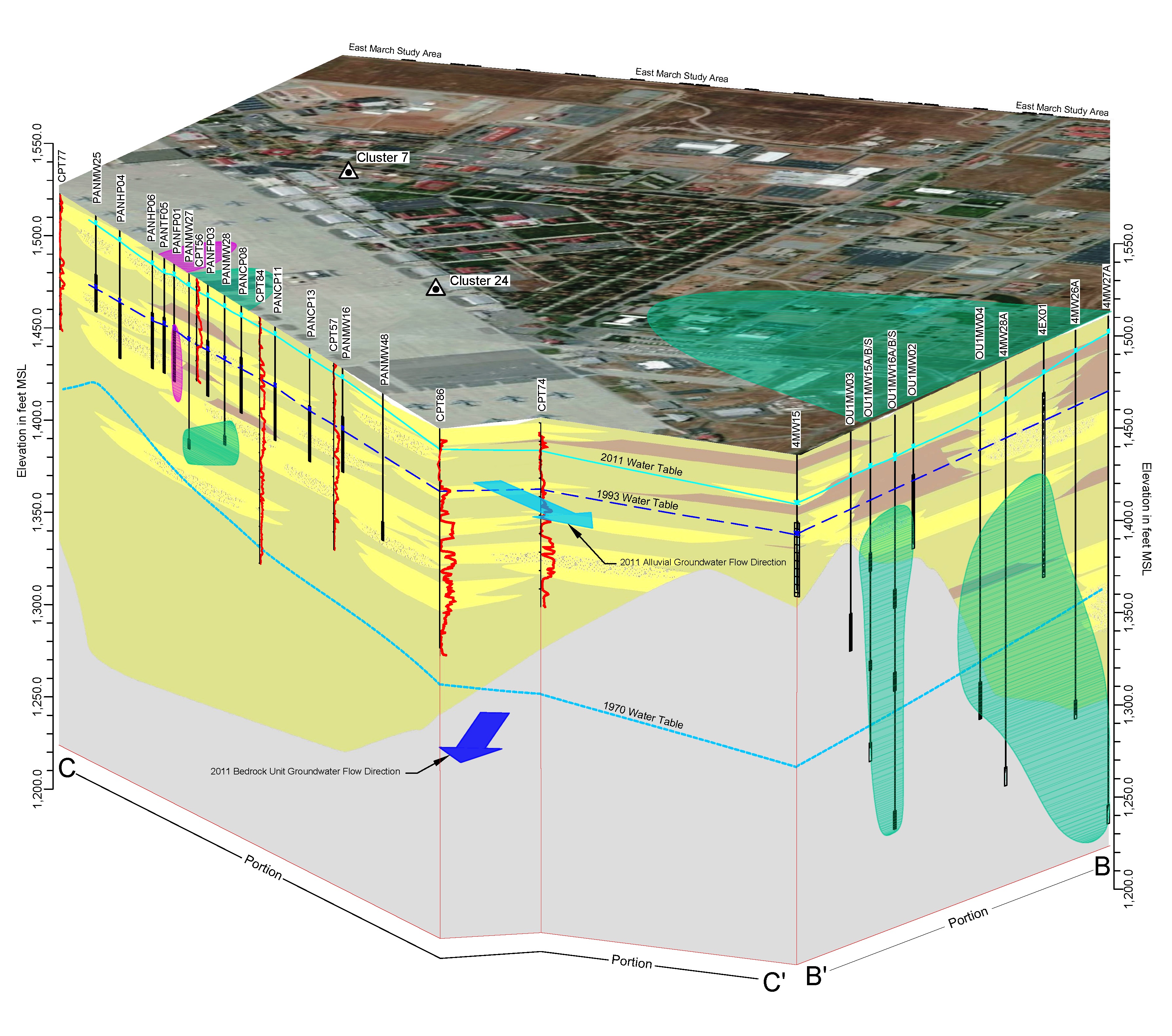
The hydrogeology specialty area has identified approaches for Conceptual Site Model, or CSM, development to explain critical geological issues, complex hydrological flow, and contaminant movement at site-specific and base-wide locations. The development of CSMs presents a three-dimensional picture of site conditions that illustrates environmental radionuclide distributions, release mechanisms, exposure pathways and migration routes, and potential receptors.
The CSM demonstrates current site conditions supported by maps, cross-sections, lithostratigraphic/hydrostratigraphic columns, and site diagrams that illustrate human and environmental exposure through contaminate release and migration to potential receptors. These approaches are responsible for accelerating the process for defining the nature and extent of contaminants, as well as addressing site restoration in a systematic and efficient manner.
Effective site management and restoration are dependent on a clear understanding of surficial and subsurface conditions and how installation activities ensure the protection of human health and the environment. The hydrogeology specialty area provides support in understanding complex geological and hydrological issues through expert advice in evaluating site contamination, specifically at challenging sites, through groundwater modeling and review services for contaminant fate and transport.